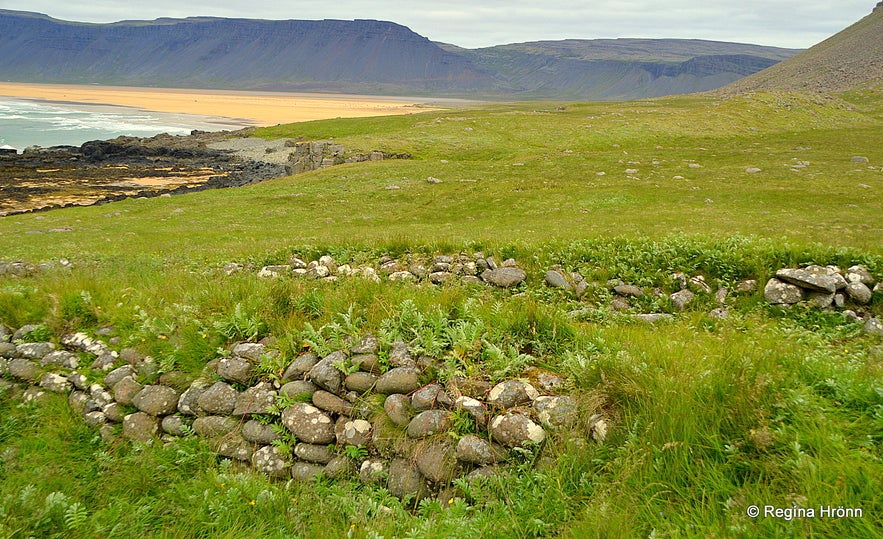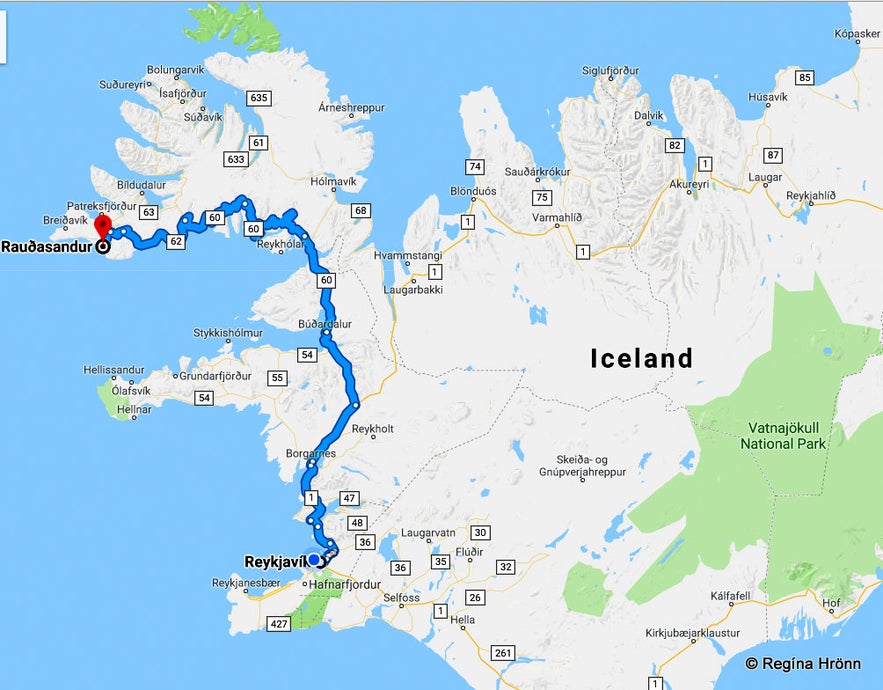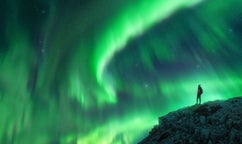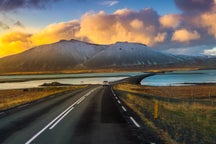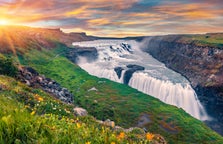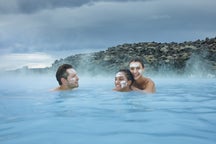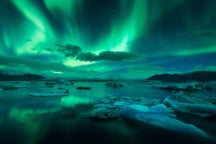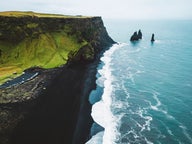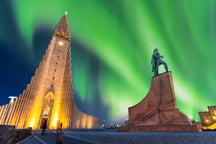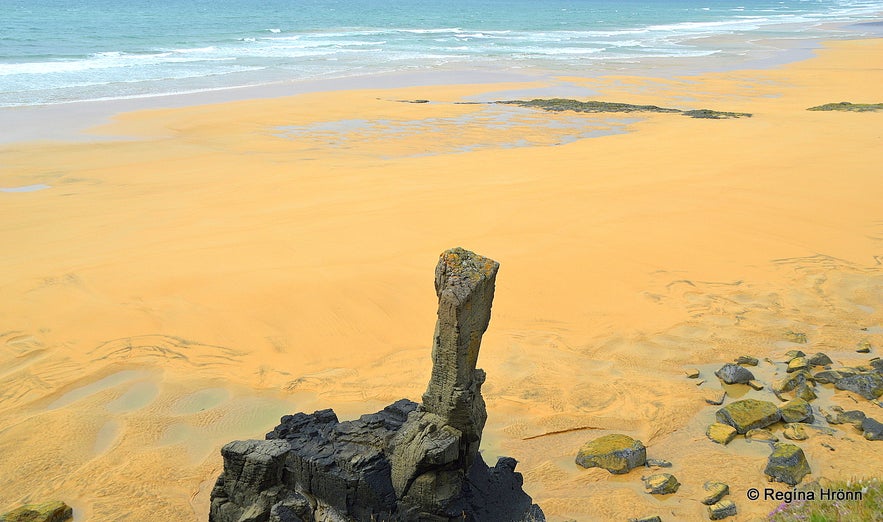
Rauðasandur beach, or Red Sands beach, is a beautiful red beach in a very remote area in the Westfjords of Iceland. Most beaches in Iceland are black, but the beaches in the Westfjords are golden or pink.
Rauðasandur is reddish, and the name of the beach is most likely derived from the colour of the sand. The sand, in turn, gets its colour from pulverized scallop shells.
But the name can also derive from the settler in this area, Ármóður rauði Þorbjarnarson - Ármóður the Red.
Top photo: Rauðasandur by Sjöundá
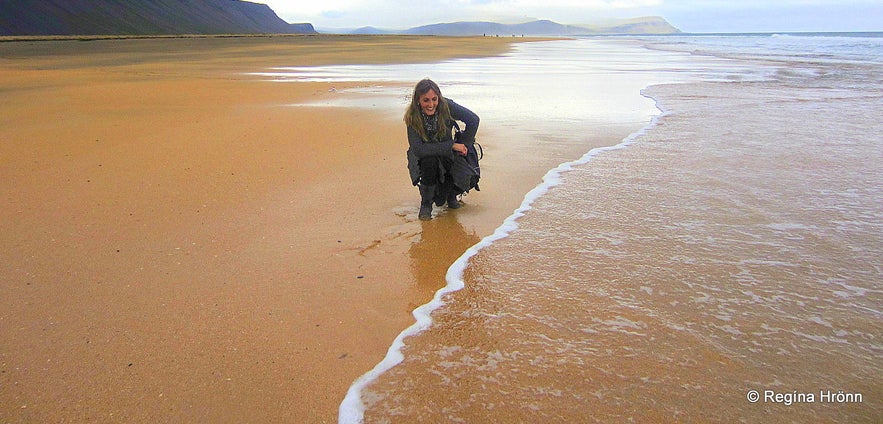
At Rauðasandur
You might also notice that the beach is called Rauðisandur or Rauðasandur; either name is valid, a local told me. I prefer the name Rauðasandur and have seen it marked like this on old maps.
Rauðasandur beach stretches for about 10 km from Látrabjarg bird cliff in the west to the Skorarhlíðar mountainside in the east.
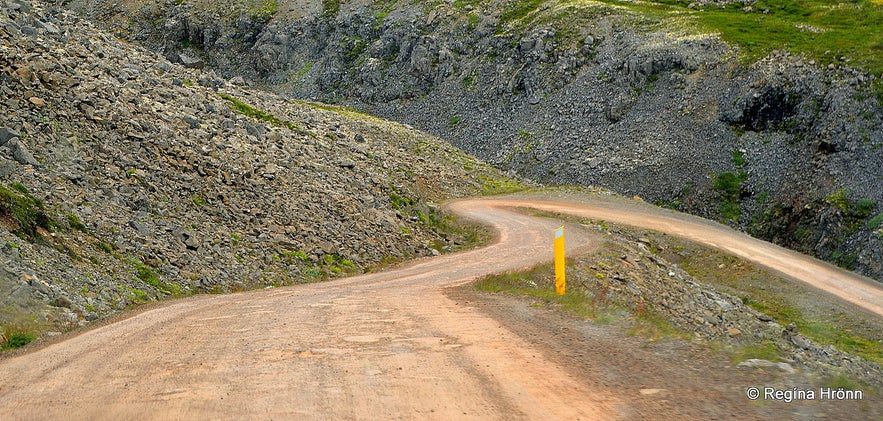
The winding gravel road leading to Rauðasandur
The roads in this part of the Westfjords are not paved. The road leading to Rauðasandur is gravel, winding, and steep, so drive slowly.
Some call it the most frightening road in the Westfjords, but to me, it looks ok, just very winding.
I have, on the other hand, driven on the most dangerous road construction in the Westfjords!
See my travel blog:
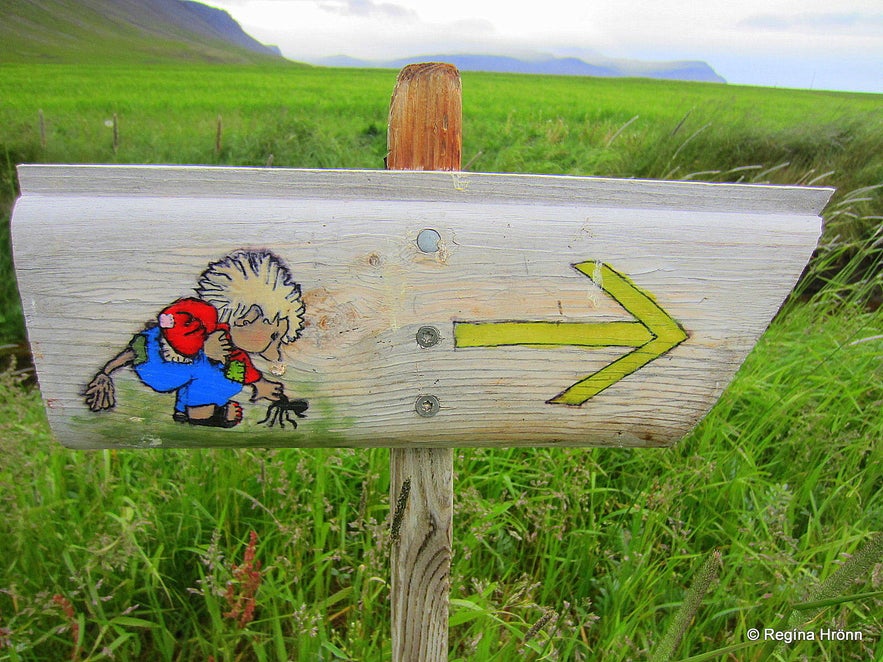
Directions to Rauðasandur
Once down the mountain, Rauðasandur can be reached from both the right-hand side and the left-hand side, where there is a camping area. There is a couple of km drive and the car can be parked in a small parking lot.
By the parking lot, there is a map explaining how to get to the beach. Handwritten on it in Icelandic were directions: a 1 km walk to the beach and a shallow river to wade.
Funny troll signs lead the way :) Ok, now, wading a shallow river; how shallow and how wide is that river, and where is it?
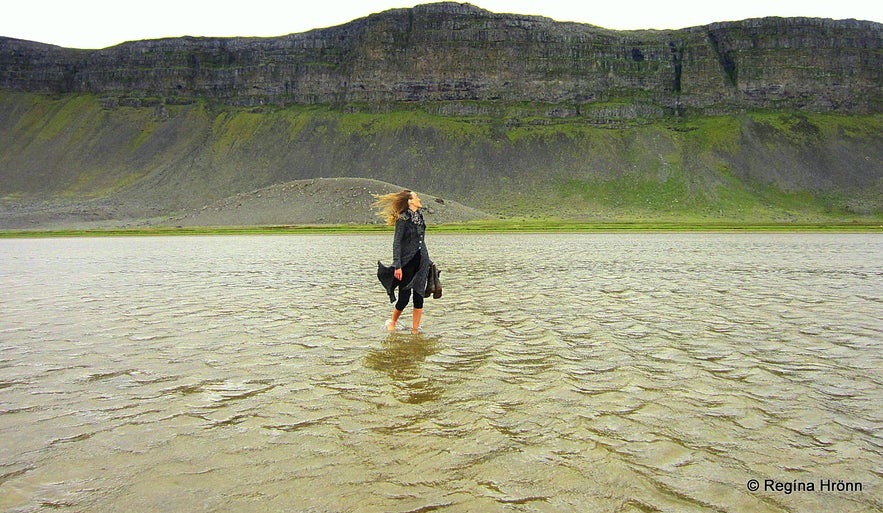
Wading in the shallow water
We walked for around 30 minutes by the sea, always seeing Rauðasandur on the other side and wondering when we would get there.
French tourists followed us, wondering the same thing: how to get to the red sandy beach on the other side of the sea.
All of a sudden, I spotted a man walking on the sea in the distance. It was a surreal sight; it looked like he was actually walking on water! I walked faster so I could ask him how to get to the other side.
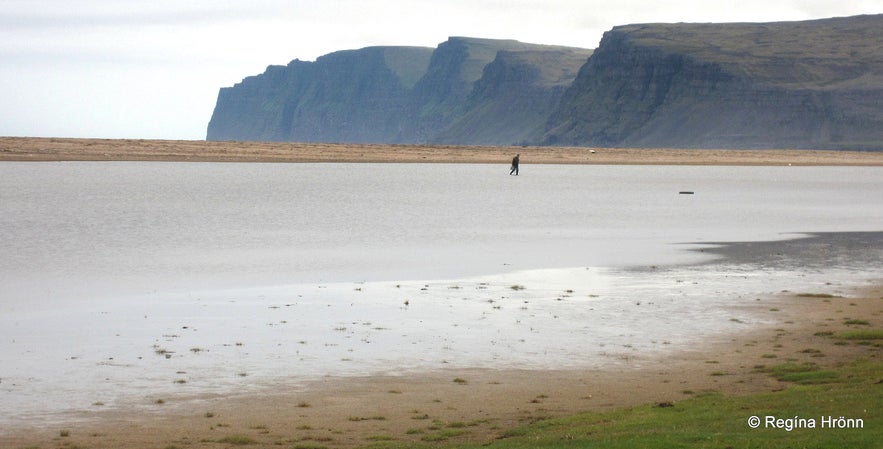 Walking on water
Walking on water
The man was the farmer in this area and had been to the beach to collect whale bones from a whale that had beached here 2 years earlier.
His daughter made artwork from the whale bones.
The farmer said that it was easy to pass the river (sea) and that it was shallow. It was indeed shallow and easily passable, but ice-cold.
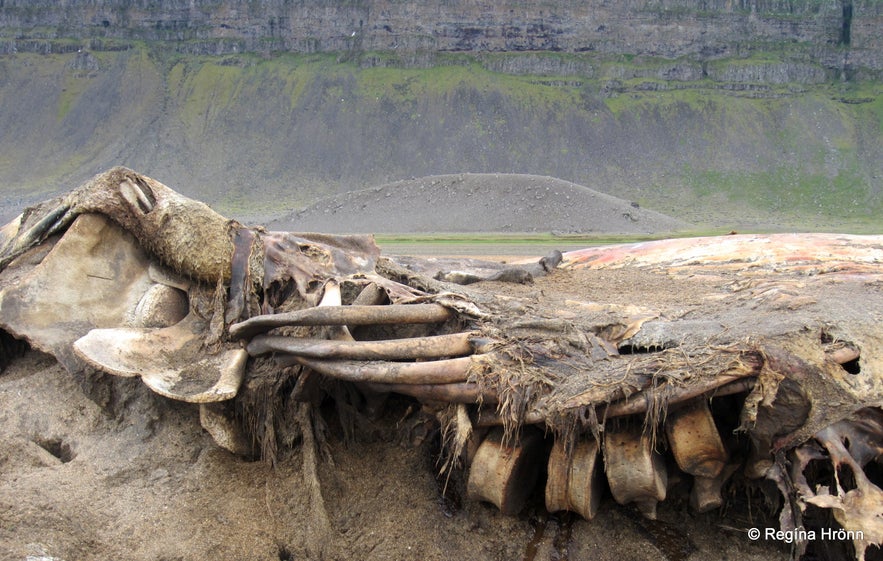 A beached whale
A beached whale
Although it is a bit difficult getting here, driving to this remote area of Iceland, driving down the steep mountain, walking for half an hour, and wading in the cold sea/river, it is so worth it when you reach the destination, the red sands.
It is just lovely being here in tranquillity and beautiful nature. And one can take stunning photos here when the light is right.
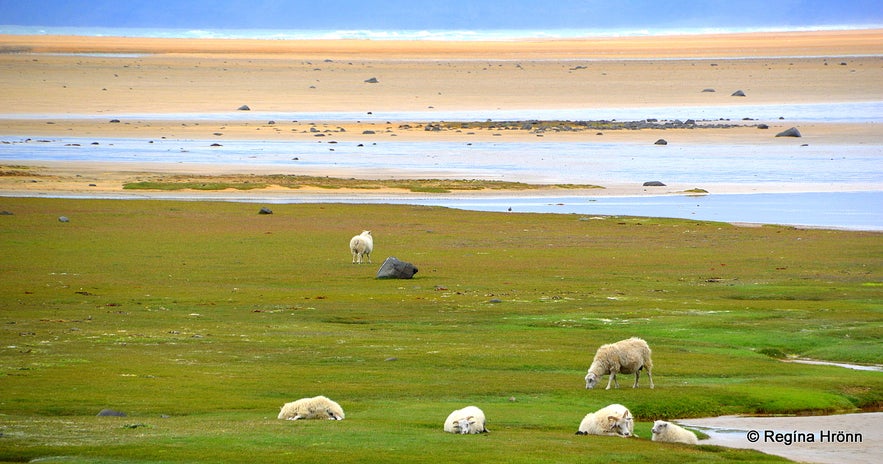
Sheep at Rauðasandur
There are not many farms left (only 3 in 2022) at Rauðasandur, at Lambavatn, Stakkar, and Melanes, but at the Lambavatn farm, you will find the westernmost dairy farm in Iceland.
It is the only farm in the Westfjords where grain (barley) has been grown.
The milk truck cannot always reach the dairy farm, though, as transportation over the heath in bad weather can be very difficult.
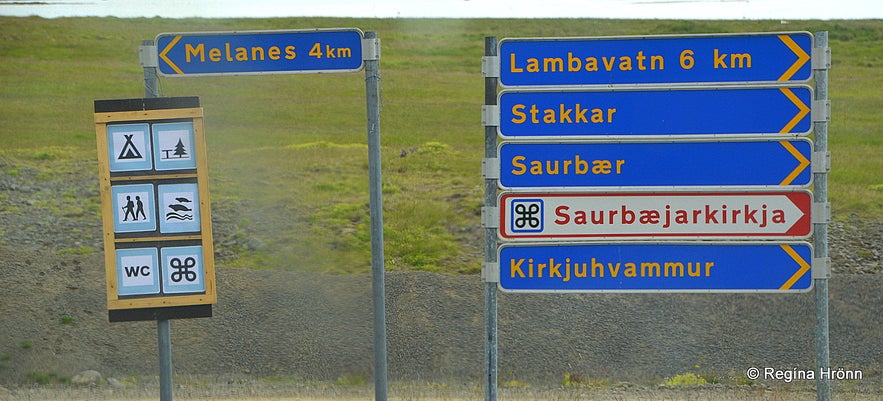 A photo taken out of the window of the car, so it is of bad quality, but it shows the farms at Rauðasandur
A photo taken out of the window of the car, so it is of bad quality, but it shows the farms at Rauðasandur
We also visited Rauðasandur from the camping site on the left-hand side when you come down the winding road. Here, the farmer at Melanes, Ástþór, has run a travel service since 2007.
Ástþór had a bad car accident back in 2003, when his car slid off the winding road leading to Rauðasandur, and has been in a wheelchair ever since. So he got rid of most of his sheep in 2017 and turned to tourism instead.
A tragic passion crime story took place in this area:
Morðin á Sjöundá - the Murders at Sjöundá farm
Ruins of the old turf farm at Sjöundá
At the farm Sjöundá around the year 1800, there lived two married couples. Bjarni Bjarnason, the husband from one marriage, and Steinunn Sveinsdóttir, the wife from the other marriage, had an affair.
They ended up, supposedly, murdering their spouses, Jón Þorgrímsson and Guðrún Egilsdóttir, in the year 1802. Or so it is believed. Guðrún died suddenly, and the body of Jón was found on Rauðasandur.
Bjarni and Steinunn were placed under arrest and tried for the murders. Bjarni said that Jón had fallen from cliffs and into the sea. But the body of Jón was unbroken when it was cast up on the shore the following autumn.
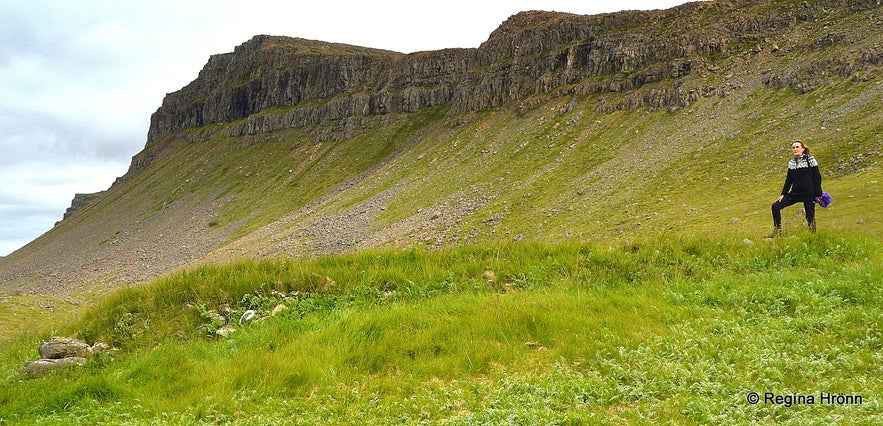
The farm at Sjöundá
Steinunn confessed that she had given Guðrún porridge with poison in it, from which she got ill. And, injuries on Guðrún's upper body indicated that she had been suffocated.
Eleven children were involved in this tragedy, as Bjarni had five children and Steinunn also had five children, and they had one child together when Steinunn was in custody at Hrísnes, a boy named Jón.
Steinunn and Bjarni were found guilty and sentenced to death. They were imprisoned in Reykjavík (now housing Stjórnarráðið, the Cabinet of Iceland).
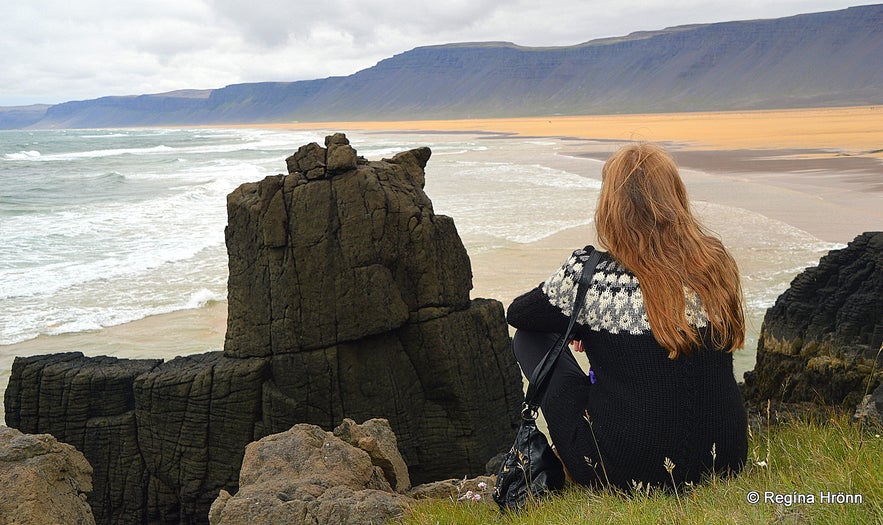
The view of Rauðasandur from Sjöundá
No executioner was found, so they were to be moved to Norway, where they were to be executed.
Steinunn died in prison in 1805 (37 years old and a mother of 7), a few days before her departure to Norway. We don't know how she died, but the autopsy showed that she died of a stroke. There are still speculations about how she died.
Bjarni was tortured and executed in October 1805 in Kristiansand, Norway.
Bjarni's five children were put into foster care and tragically died after escaping. This is such a tragic story :(
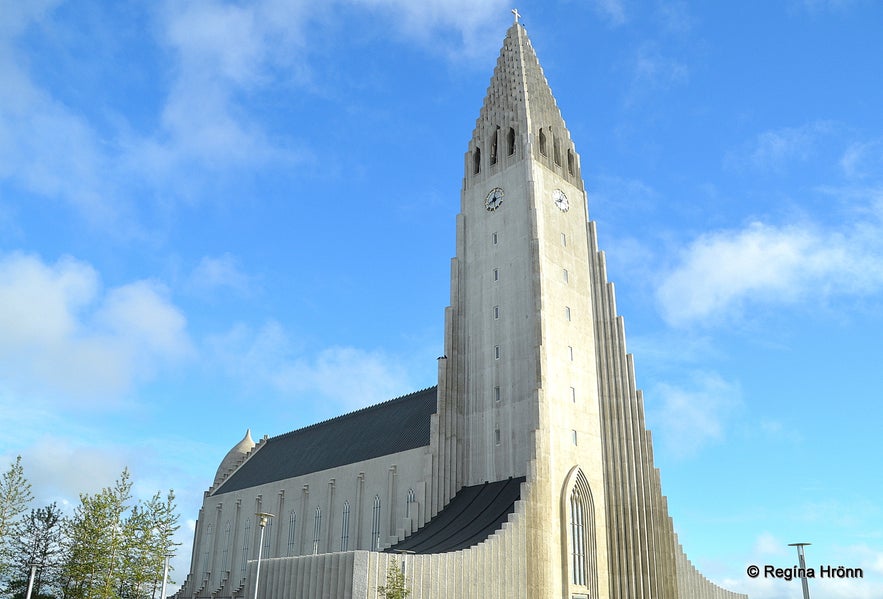 Hallgrímskirkja church in Reykjavík
Hallgrímskirkja church in Reykjavík
Having been found guilty of murder, Steinunn couldn't be buried in the holy ground in the cemetery, so she was buried under a pile of rocks (dysjuð) on Skólavörðuholt, east of Hallgrímskirkja church, which is now one of the landmarks of Reykjavík.
This was by the thoroughfare out of the growing town, and passers-by were urged to throw rocks onto the pile, which grew and grew.
Her grave was called Steinkudys, but dys is the Icelandic term for this kind of grave.
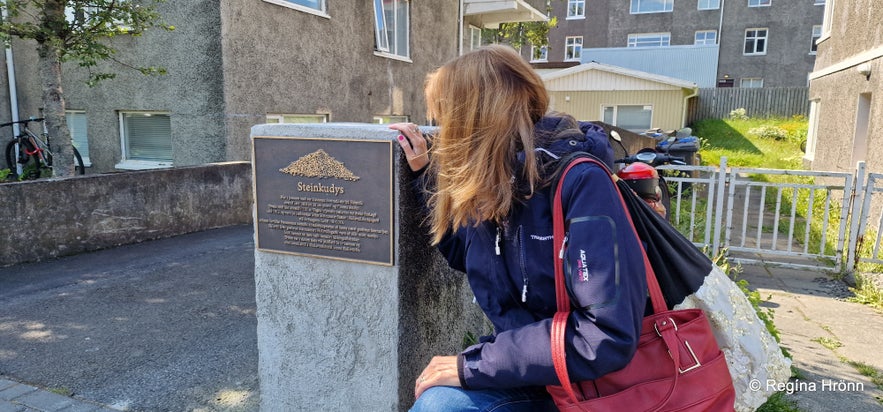 A memorial plaque was put up at Leifsgata 12, where Steinkudys was located
A memorial plaque was put up at Leifsgata 12, where Steinkudys was located
When rocks were needed in 1914-1915 as building material for Reykjavík harbour, they were blown up near Steinkudys, and on the 8th of January 1915, Steinunn's coffin appeared.
Matthías Þórðarson, state antiquarian, ordered that the removal of the rock was immediately stopped and that the bones were to be taken and buried in the Hólavallakirkjugarður cemetery.
The ministers of Dómkirkjan Cathedral refused to bury her in holy ground, as she was a convicted criminal.
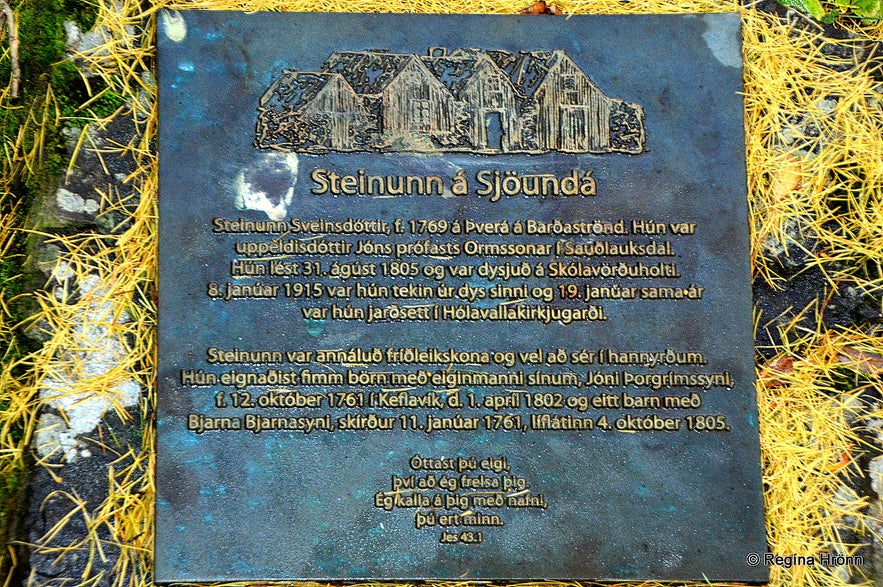
The plaque on the gravestone of Steinunn in Hólavallakirkjugarður cemetery in Reykjavík
The church gave in on the condition that Steinunn would be buried in an unmarked grave in Hólavallakirkjugarður cemetery and that her name would not be added to the cemetery registry.
Ólafur Ólafsson, the minister of Fríkirkjan - the Independent Church in Reykjavík, buried the remains of Steinunn. Steinunn was buried on the 19th of January 1915 in holy ground.
In 2012, Steinunn's descendants (now more than 2,000) erected a gravestone with a plaque on her grave. They took a rock from the farm at Sjöundá at Rauðasandur and some red sand to put on her grave.
So finally, some 200 years after her death, Steinunn got her name on her grave.
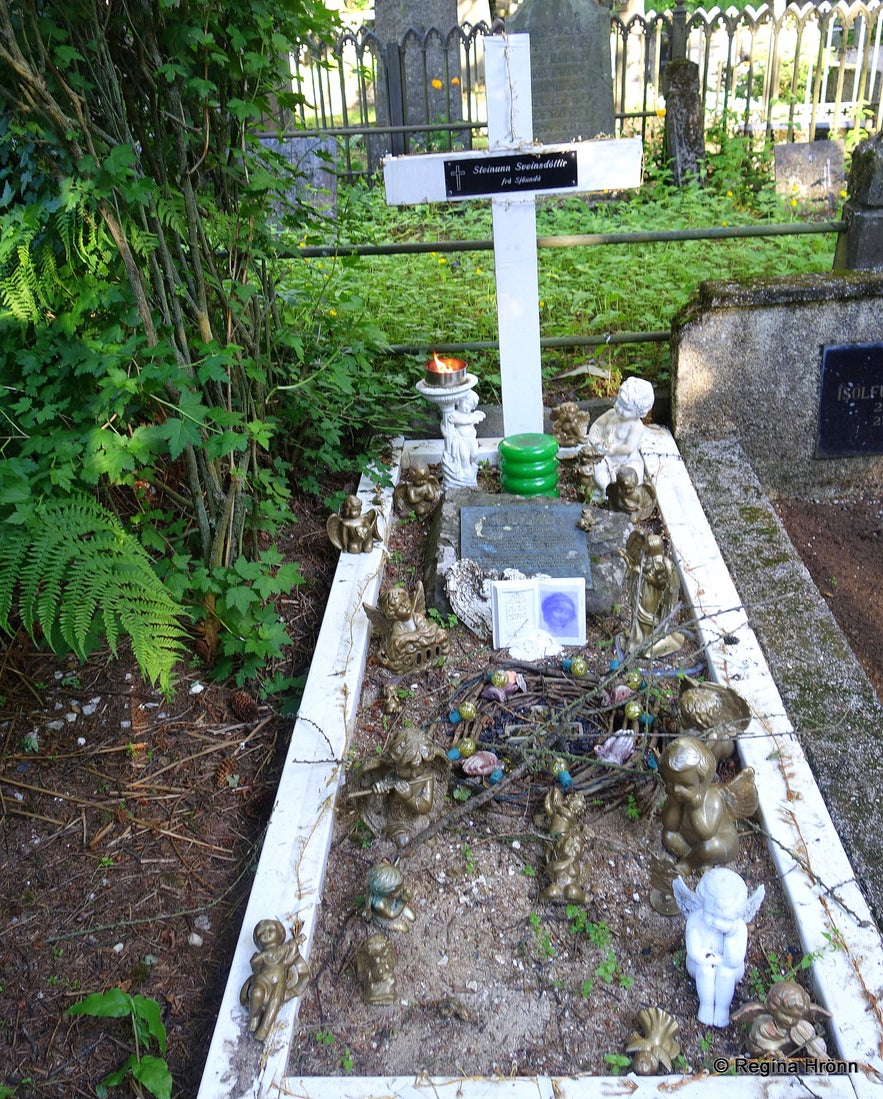 The grave of Steinunn
The grave of Steinunn
In 2019, Christmas lights were placed on her grave, and a minister from Dómkirkjan church signed her grave with the cross.
Here is the information I found in Íslendingabók about Steinunn, in Icelandic:
"Steinunn Sveinsdóttir 1767 - 31. ágúst 1805. Var á Efri-Vaðli, Hagasókn, V-Barð. 1788. Húsfreyja í Hrísnesi, sömu sókn, 1794. Húsfreyja í Skapadal, Sauðlauksdalssókn, Barð. 1801.
Húsfreyja á Sjöundá og í Skápadal, Rauðasandshr., Barð. Dæmd „fyrir skammarlegt hórlíferni með Bjarna fyrir morðtilraun við Guðrúnu konu hans með eitri“, segir í Lyrd".
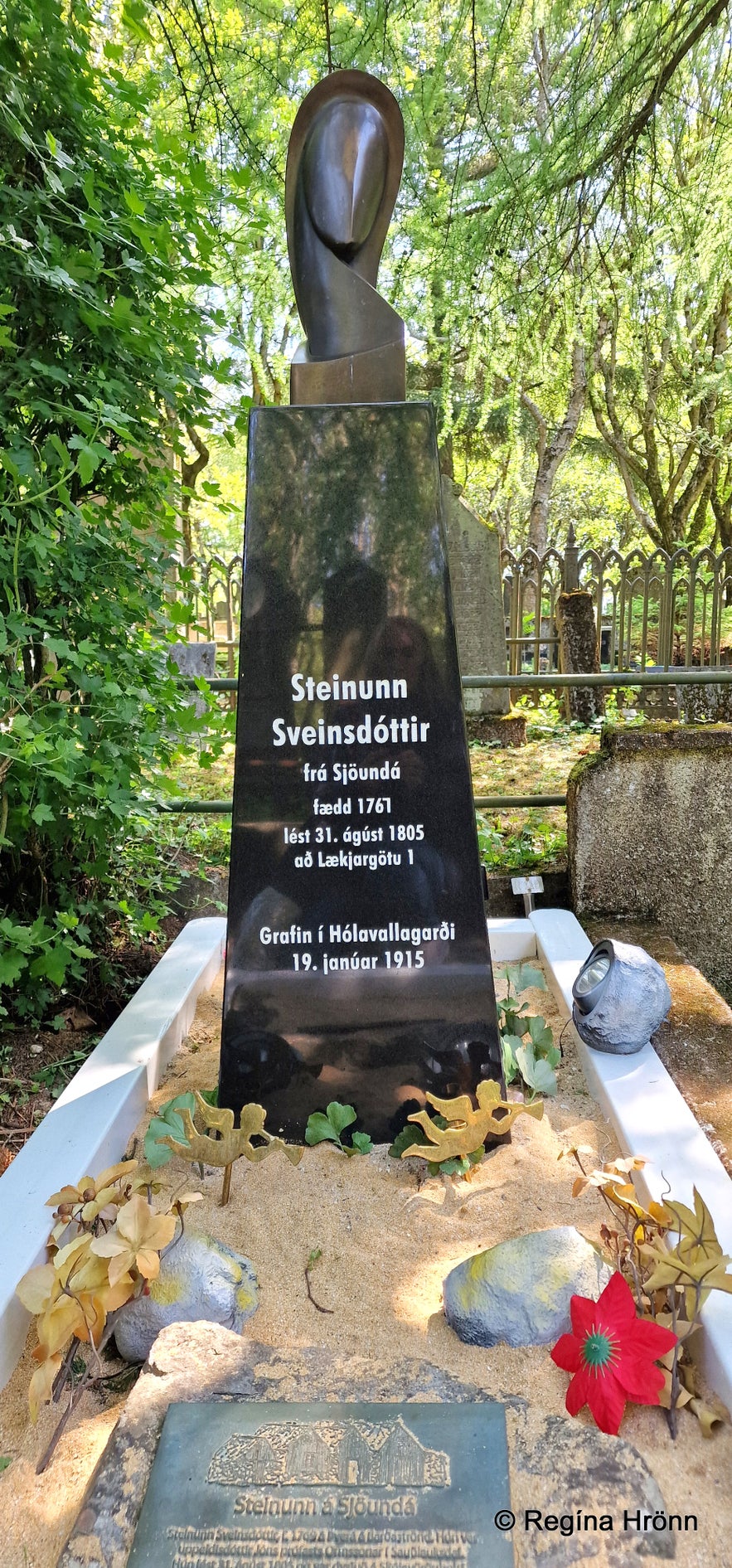 The new memorial stone at Steinunn's grave was erected in 2025
The new memorial stone at Steinunn's grave was erected in 2025
I visited her grave, as Hólavallakirkjugarður cemetery is also where my family plot is located. A stone's throw away from my family plot, I found Steinunn's grave.
Her grave is number N-119A and is marked on this map of Hólavallakirkjugarður cemetery.
When I have passed by Steinunn's grave, I have seen many angels on the grave and a lit candle. It warms my heart to see that people are attending to her grave. I read in the Morgunblaðið paper that a man named Jóhann Kristjánsson has been attending her grave.
In June 2025, a new gravestone was put on Steinunn's grave.
Bjarni's name is also inscribed on the gravestone, but he is buried in Kristiansand, Norway.
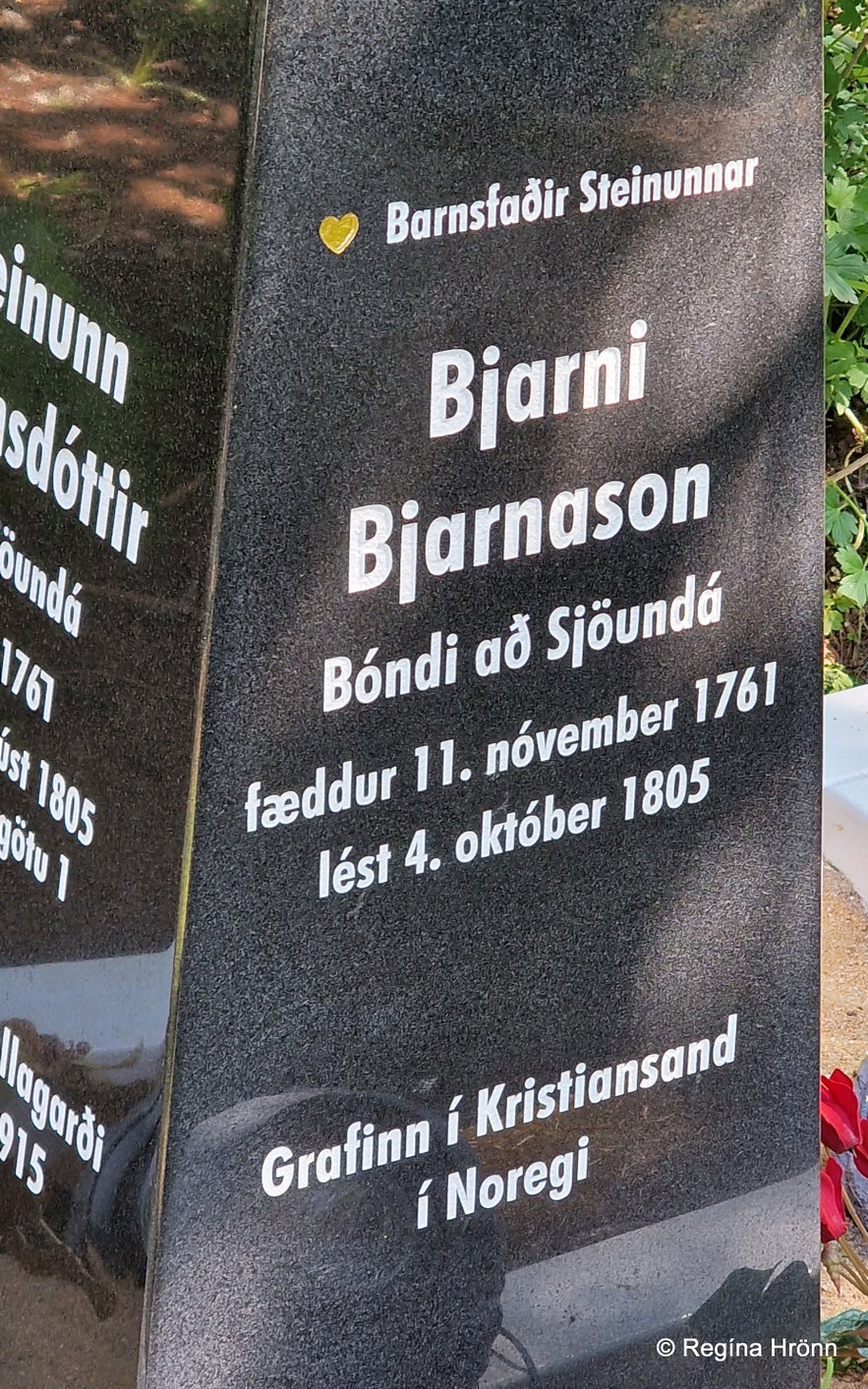 Bjarni is buried in Norway
Bjarni is buried in Norway
A memorial plaque was also put up at the same time at Leifsgata 12 in Reykjavík, where Steinkudys is believed to have been located. Leifsgata street is east of Hallgrímskirkja church.
The inhabitants of Leifsgata 12 kindly allowed the plaque to be put up by their house.
Here, the bones of Steinunn lay under a pile of rocks for 110 years, from 1805 to 1915. And now, in 2025, she has been resting in the Hólavallakirkjugarður cemetery for another 110 years.
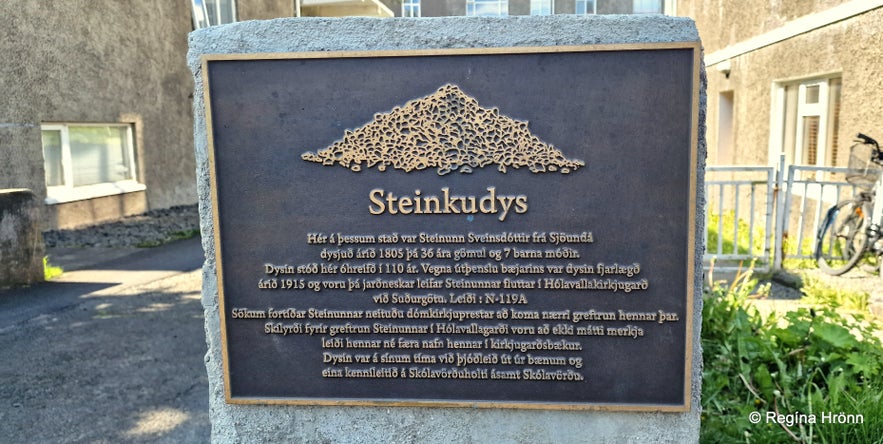 The memorial plaque at Leifsgata 12
The memorial plaque at Leifsgata 12
In 2022, a kangaroo court (sýndarréttarhöld) took place in the case of Steinunn and Bjarni, as it is not certain whether they received a fair trial.
A group (approx. 100 people) of lawyers from Lögmannafélag Íslands - the Icelandic Bar Association visited Sjöundá, and a debate took place at Rauðasandur.
A symposium was held in the village of Patreksfjörður in the Westfjords. The conclusion was that Steinunn and Bjarni had most likely murdered Guðrún and Jón.
Others say that they were innocent, but victims of the times and circumstances.
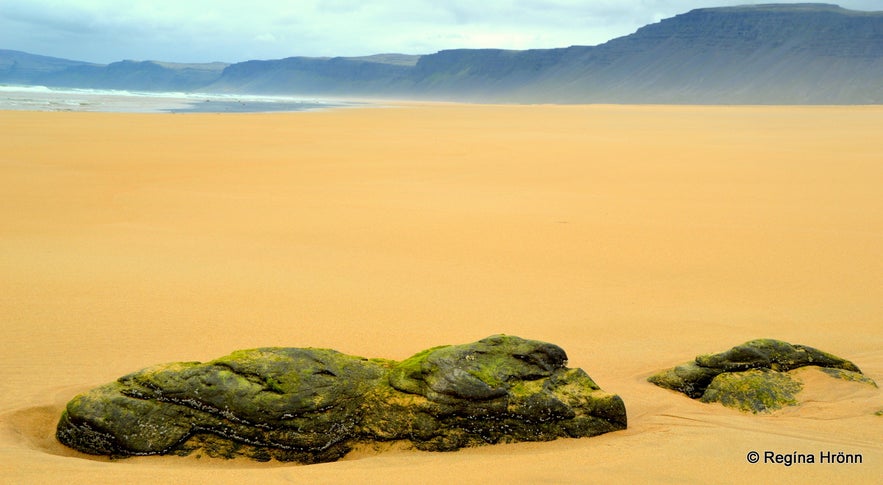
Rauðasandur beach
You can reach Sjöundá from the camping place on the east side of the beach. Let's tread lightly here and respect the memory of these unfortunate people.
This is also a historic place for Icelanders, and we all had to memorize a poem in school that is directly related to this area.
It is a poem by our beloved poet, Matthías Jochumsson, about Eggert Ólafsson, who drowned in 1768 off the shore by Skor on the eastern part of Rauðasandur.
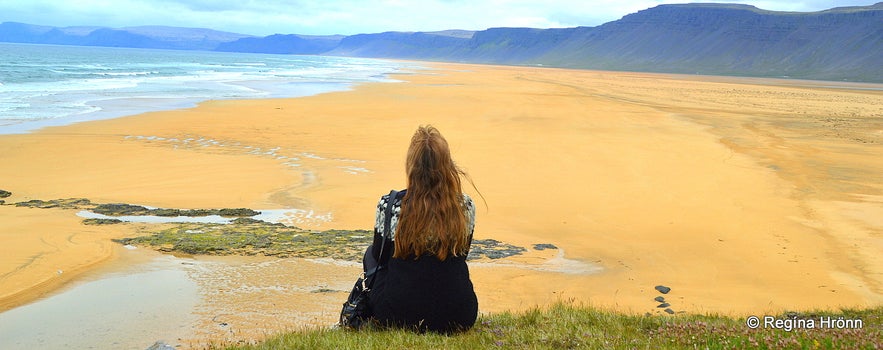
Rauðasandur beach
Grey seals are often spotted at Rauðasandur in the summertime, and I have been told that as many as 100 seals can be spotted sunbathing together on the red beach.
To visit this area, you can join the tours, which start in Patreksfjörður village and are operated by Westfjord Adventures:
2-day guided Winter break to the Westfjords with a flight to Bíldudalur
Rauðasandur Beach | Walking Tour in the Westfjords
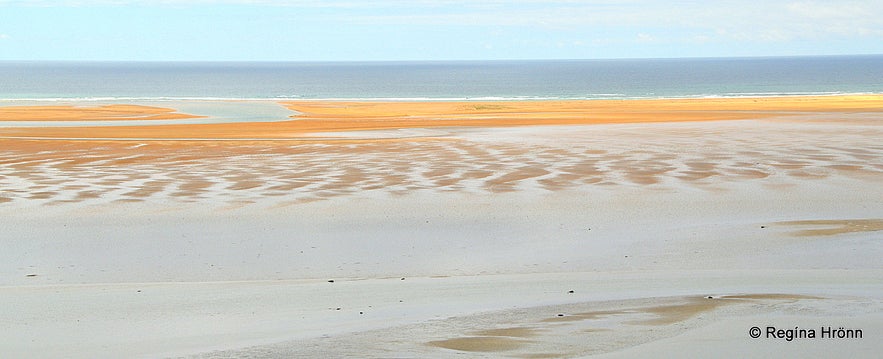
Rauðasandur beach
You can also rent a car in Reykjavík and drive to Rauðasandur yourself, but the gravel road down to the beach is steep and has some pretty sharp turns, so it is not for everyone.
Especially when you meet a large car!
Here you can see the exact location of Rauðasandur on Google Maps.
I have written several other travel blogs on the beautiful Westfjords of Iceland and will be adding many more:
The Jewel of the Westfjords - Dynjandi waterfall
Hot pools in the Westfjords of Iceland
Kjaran's Avenue and Dynjandi Waterfall
A Visit to Arnarfjörður, the Sea Monster Fjord of Iceland
Patreksfjörður - is this the friendliest Village in the Westfjords of Iceland?
A Visit to Kollsvík Cove in the Westfjords - the smallest Settlement in Iceland
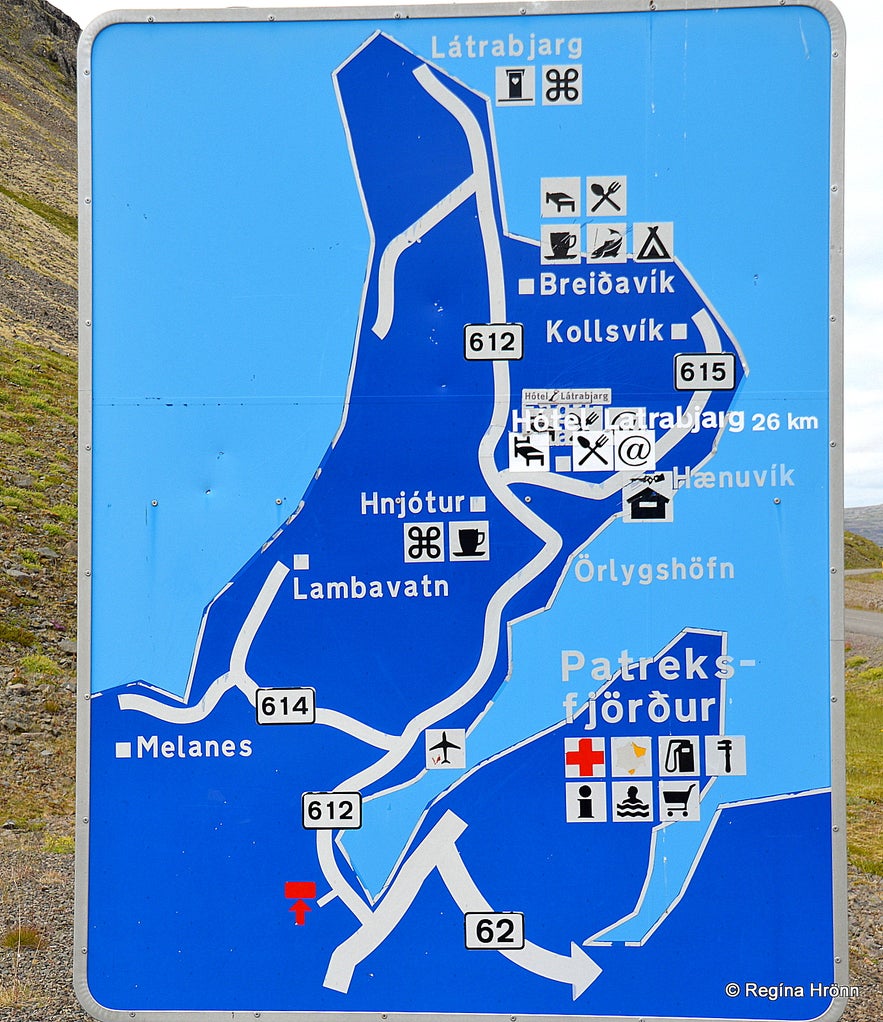
Have a lovely time in the beautiful Westfjords of Iceland :)
Sources: Mbl.is

